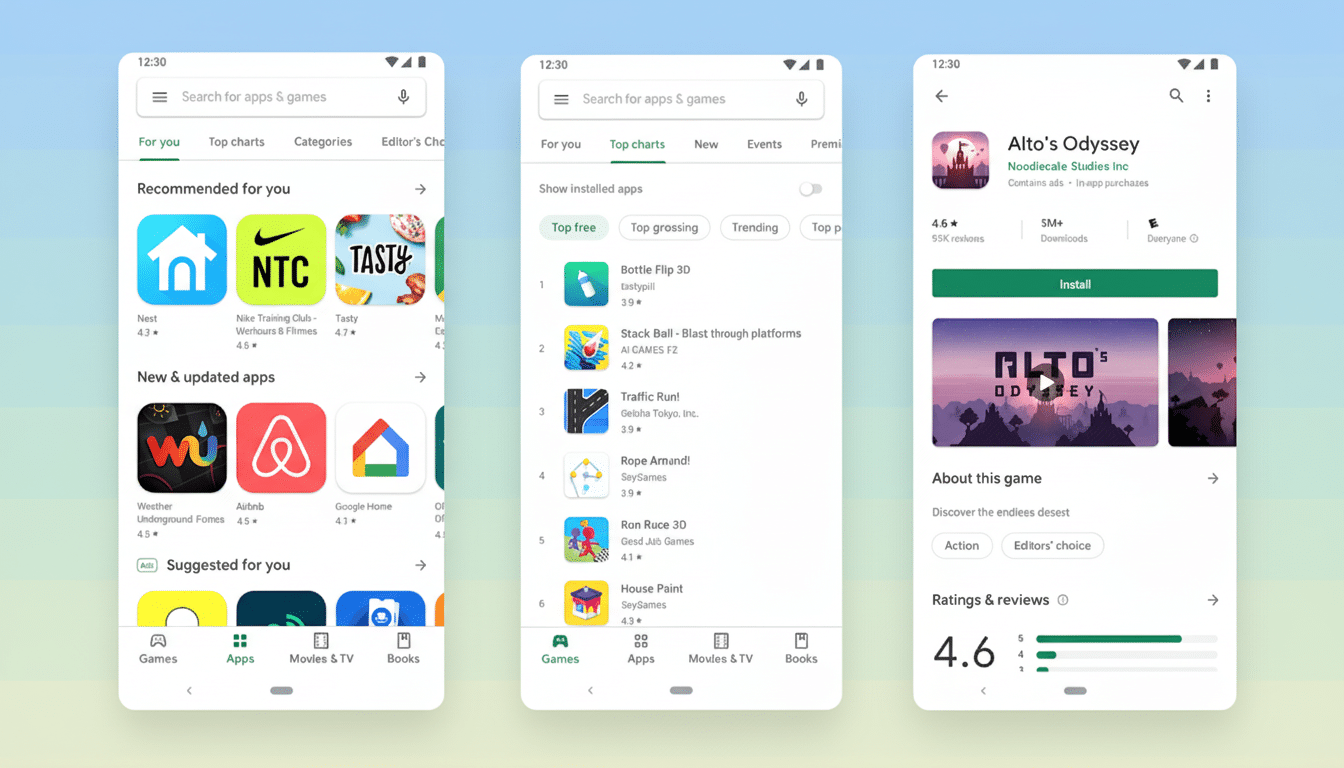Other Android users have been there longer, of course — disillusioned about the choice they never truly had in the first place. The response marries notions of convenience, privacy, antitrust law and a culture of tinkering that has helped Android to flourish.
What a Play Store-only Android Would Mean
In practical terms, a Play Store-only world would close up sideloading and block third-party stores like F-Droid and the Amazon Appstore. For regular users, GitHub releases and direct APK installs and specialized storefronts would be gone. Internal distribution within enterprises could potentially still route through Managed Google Play, but the personal freedom to install whatever you want from wherever you want would disappear.

The fallout would be instant for communities who depend on apps that Play policies have either banned or limited — privacy-forward tools, tracker-blocking suites, specific emulators, alternative YouTube front ends and region-unlocked services. Significant titles from outside the store, like Fortnite, which Epic distributed directly while it was feuding with Google, offer one easy example of what would vanish.
Security Wins Versus User Freedom on Android
The argument for exclusivity is about safety. Play Protect now reads more than 125 billion installed apps per day and has prevented millions of policy-violating rejections in the last year, as well as disabling hundreds of thousands of bad developer accounts, Google says. Many security vendors like Kaspersky and ESET consistently publish that the majority of Android malware infections come from sources outside the Play Store.
Centralized distributions would likely mitigate fraud, fake updates and supply chain risk on the very periphery. Refunds, parental controls and purchase protections would be uniform. But there’s a cultural tax on this security dividend: fewer experimental apps, slower innovation at the edge and a tighter funnel that will amplify Google’s policy decisions.
Competition and Law Will Determine the Outcome
Then there is the antitrust pressure. In the Epic Games case, a federal jury found Google operated illegal monopolies in Android app distribution and in-app billing; remedies are now taking shape, but the verdict made clear the distribution power is under scrutiny. In Europe, the Digital Markets Act explicitly calls for alternative distribution and fair access, making a hard lock-in to one store legally risky in the EU.
Regulators in numerous jurisdictions have forced changes to mobile platforms already, from concessions on browser engines to alternative payments. Such an action would likely face quick scrutiny and, in some jurisdictions, be banned outright.

Who Wins and Who Loses in a Play Store-only Android
Mainstream users might barely notice. Industry analysts agree that today, the overwhelming majority of Android app installs are coming through the Play Store. For individuals or businesses using mega-popular social, banking, shopping and streaming apps, life would feel broadly familiar — perhaps simpler and safer.
Power users, developers and privacy fans would feel the walls closing in. They depend on F-Droid for open source tools, GitHub for betas and direct APKs where an app cannot or will not meet Play policy. The indie developers could shift to Play’s internal testing tracks, but doing so is additional friction, identity checks and risk of policy that some projects exist to avoid.
The Price of Authoritarian Control on Android
Centralization not only aggregates risk to the extent it reduces it. One tweak to a policy — on content, encryption, ads or payments — can eliminate whole swathes overnight. We’ve seen this before with ad-blocking VPNs, call recorders and other gray-area utilities that fulfill legitimate needs in some markets but run afoul of platform rules.
It also changes the balance of power in monetization. Play Store-only distribution now cements debates over fees and billing policies that antitrust regulators and courts are already scrutinizing. And once alternative paths disappear, developers lose leverage in negotiations.
So, Could You Live With It on a Play Store-only Android?
If you are all in on Play today, that answer is probably yes. You’d get a more straightforward safety story and less confusion about unknown sources. For the rest of us — the open source crowd, privacy diehards, power users from other regions, teams shipping niche tools — the answer leans no. They are in, around and through those workflows that Play begins to dance even if the model in isolation doesn’t provide them.
The larger question is if such a future is even possible. With regulatory guardrails, ongoing litigation, and Android’s reputation as the “open” platform, a completely Play-locked Android seems improbable in most locales. However, the direction of travel does make a difference. As the checks tighten and the side channels narrow, users are going to have to decide where they stand — including whether their must-have apps fit comfortably inside Google’s walled garden.

